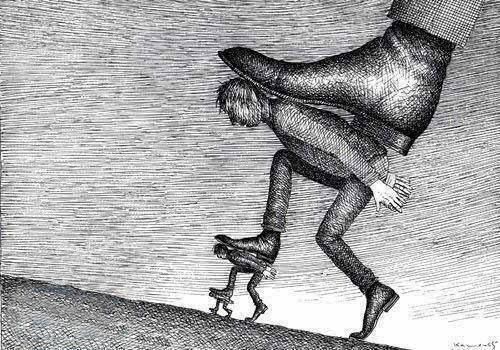Just after I take my seat for a meditation at the place with a long view downstream, a young, scruffy, unhappy-looking young man charges into the site. It’s an unseasonably warm 75 degrees in the Central Valley, and he’s overdressed in a coat and heavy pants.
Without saying a word, he walks quickly directly in front of me down to the fast-flowing stream. Rinsing his hands vigorously as if something toxic was on them, he walks back to the path, his deadpan facial expression at odds with the alacrity of his movement.
I feel a pang of compassion, and say, “beautiful day, eh?” His face softens almost indiscernibly, and he replies, “Yes, it is, have a good day sir.”
 A strange thing about human existence, especially in a culture as miserable as American culture has become, is that a small interaction like that can make a difference in someone’s day.
A strange thing about human existence, especially in a culture as miserable as American culture has become, is that a small interaction like that can make a difference in someone’s day.
I read something today that another young man in the United States said to his professor: “Because we view humanity — and thus its institutions — as corrupt and selfish, the only person we can rely upon is our self. The only way we can avoid failure, being let down, and ultimately succumbing to the chaotic world around us, therefore, is to have the means (financial security) to rely only upon ourselves.”
This is clear evidence of the insight that when a people perish, as the American people have, the vast majority of people in the culture emotionally experience it as the death of humanity. Since we are social creatures, we adapt to the conditions around us, even if those conditions are completely maladaptive.
In all times and with all peoples, there have been despicable characters that go bad early and remain bad all their lives. But with intact peoples, most people are decent and minimally caring, and can be roused to outrage by malfeasance or malevolence in their political and economic leaders.
When a people perish however, there is no bottom. Then fascism grows like fungus in moist, dark underbrush. It becomes harder and harder for ordinary citizens to find the light and be guided by it.
That’s why the view “humanity as corrupt and selfish” has become, in this country at least, the dominant, underlying worldview of most people, especially young people. That’s why we see so much hopelessness in the faces and in the actions of high school kids and younger.
Imperceptive spokespeople for the status quo on the left continue to labor under the willful illusion that the American people are still an intact, good and caring people. They say things like, “slowly but surely, the president is getting people to shrug,” refusing to realize that the shrug of indifference cuts across the social, economic and political spectrum,
and is what gave rise to this small, hideous president.
Imperceptive spokespeople for the status quo on the right continue to labor under the willful illusion that “liberal democracy has had a pretty  good run for 300 years…if the problem were really in the roots, wouldn’t it have shown up before now?” The error in that logic is too obvious to waste any words on.
good run for 300 years…if the problem were really in the roots, wouldn’t it have shown up before now?” The error in that logic is too obvious to waste any words on.
Humanity is in real and present danger, not the American republic. For “our descendants enjoy healthy lives aware of their place in this wild thing we call nature,” we have to cease seeing nature as a thing. Thought makes things, not nature. That’s not a semantic difference, but an existential distinction.
What is sufficient to change the disastrous course of humankind, which is destroying the earth and the human potential in equal measure? A psychological revolution obviously, but what does that mean?
It means a creative explosion on a global scale, even greater than the regional creative explosions that occurred around the same time in ancient Greece and India.
The Greek explosion produced the Western mind, which eventually led to incredible advances in science and technology. The Indian explosion produced 2000 years of inward exploration and development, with many complex, dead-end traditions, which only in recent decades have been superseded by the external achievements of Western civilization.
Science is the tool of knowledge that gives ever-greater tools of technology. It is not, however, a means of understanding, and cannot light the way ahead.
Humanity is only as corrupt and selfish as we are.
Martin LeFevre
No comments:
Post a Comment